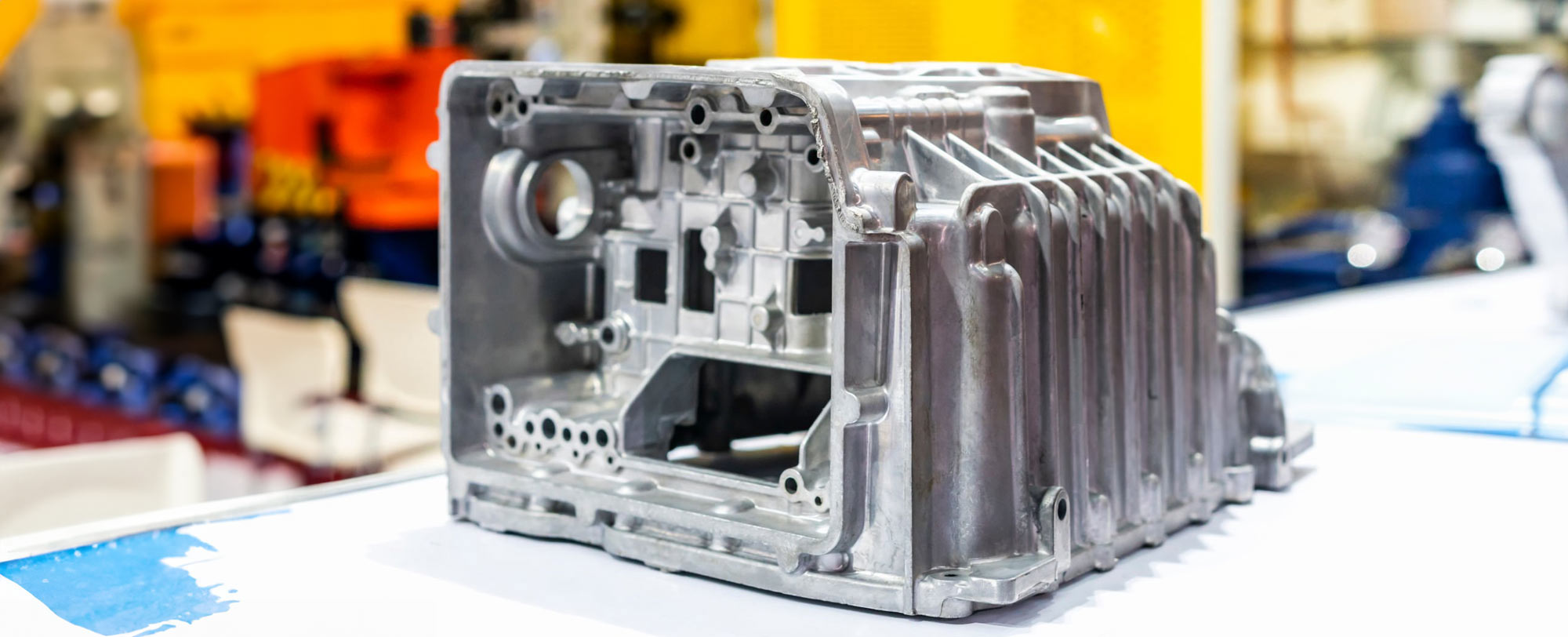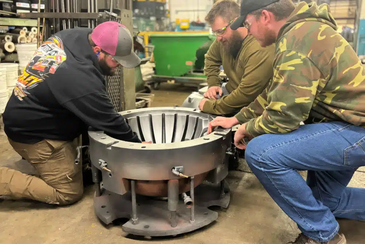Aluminum Casting Company solutions for custom manufacturing projects
Wiki Article
The Function of Light Weight Aluminum Foundries beforehand Lightweight Manufacturing Solutions
Aluminum shops substantially add to the advancement of lightweight production solutions. Their innovative casting innovations yield high-strength, lightweight elements important for markets such as automobile and aerospace. This advancement not only boosts item efficiency however likewise advertises sustainability with using recycled materials. As these factories adjust to emerging practices and innovations, they lead the way for future growths in making efficiency and environmental obligation. What exists in advance in this transformative journey?The Advantages of Lightweight Materials in Manufacturing
As markets progressively seek effectiveness and sustainability, the adoption of lightweight products in production has actually arised as a necessary strategy - Precision aluminum casting. These materials, particularly light weight aluminum and compounds, supply countless advantages that improve production processes and product efficiency. Mainly, their lowered weight adds to lower power consumption throughout transport and operation, leading to considerable cost savingsLightweight products assist in the style of more complicated geometries, enabling for higher innovation in item growth. This adaptability often results in boosted capability and performance, accommodating the advancing needs of modern-day consumers.
Additionally, making use of lightweight products can enhance the durability of items because of their resistance to corrosion and tiredness. This sturdiness not just reduces upkeep costs however also supports sustainability campaigns, as longer-lasting items contribute to much less waste. To summarize, the advantages of lightweight materials are critical in driving effectiveness, advancement, and environmental obligation in manufacturing.
Advancements in Light Weight Aluminum Casting Technologies
Recent innovations in aluminum casting innovations are changing the production landscape, especially in the production of light-weight components. Advancements such as high-pressure die casting and vacuum die casting have greatly enhanced the precision and surface coating of light weight aluminum parts - aluminum casting. These methods enable for the production of complicated geometries while decreasing product waste and boosting mechanical residential or commercial properties
Furthermore, the execution of real-time surveillance systems guarantees high quality control throughout the spreading process, leading to more consistent item end results. Collectively, these technologies not only boost the performance of light weight aluminum elements yet also sustain the market's change in the direction of even more lasting production methods.
Applications of Light Weight Aluminum Components in Different Industries
While light weight aluminum elements have long been utilized in different markets, their versatility and lightweight buildings remain to drive ingenious applications throughout markets such as auto, aerospace, and building and construction. In the automotive industry, light weight aluminum is increasingly utilized for engine blocks, wheels, and body panels, enhancing fuel effectiveness and performance. Aerospace producers take advantage of light weight aluminum for airplane structures and parts, taking advantage of on its strength-to-weight ratio to enhance gas economic climate and haul capability.In the building and construction sector, light weight aluminum is preferred for window frameworks, roofing, and architectural components, giving longevity and resistance to corrosion while decreasing overall structure weight. Additionally, the electric and electronic devices sectors take advantage of light weight aluminum's conductivity and lightweight nature, utilizing it in wiring, rooms, and warm sinks. These varied applications highlight the essential duty browse this site of aluminum components, which not only satisfy sector needs yet also add to developments in product style and performance across several fields.
Sustainability and Power Effectiveness in Aluminum Foundries
The light weight aluminum shop industry plays an important function in advertising sustainability and power efficiency, specifically as need for light-weight parts continues to expand throughout numerous industries. Foundries are significantly embracing ecologically friendly techniques, such as making use of recycled aluminum, which considerably lowers power usage and greenhouse gas emissions compared to main light weight aluminum production.Developments in casting modern technologies boost power efficiency by optimizing the melting processes and reducing waste. Methods like die spreading and financial investment spreading permit exact product use, lessening excess and scrap.
Furthermore, lots of foundries are purchasing sustainable power sources to power procedures, better reducing their carbon footprint. Executing power management systems enables factories to improve and check energy usage, ensuring they run at peak effectiveness.

Future Patterns in Lightweight Manufacturing Solutions
Exactly how will emerging technologies form the future of light-weight production options? Technologies such as innovative products, automation, and additive production are readied to redefine manufacturing procedures. The combination of smart manufacturing innovations, including the Net of Things (IoT) and expert system (AI), will allow real-time surveillance and optimization, enhancing efficiency and lowering waste.
As sustainability continues to be an extremely important issue, light-weight solutions will significantly focus on reusing and recycling materials, lining up with round economy principles. This development in light-weight manufacturing will certainly not only improve product efficiency however additionally add to environmental goals, guaranteeing that the sector stays affordable in a swiftly transforming market landscape.
Regularly Asked Concerns
Exactly How Do Aluminum Foundries Make Certain High Quality Control in Manufacturing?
Aluminum factories guarantee quality assurance in manufacturing through extensive screening, standard treatments, and continuous monitoring - Aluminum Foundry. They apply knowledgeable workers and advanced technologies to keep uniformity, minimize problems, and meet industry criteria throughout the production processWhat Are the Main Challenges Encountered by Light Weight Aluminum Foundries?
Light weight aluminum shops face obstacles such as changing resources costs, you can check here preserving manufacturing effectiveness, making certain regular quality, adapting to technological innovations, and conference ecological guidelines, all of which effect their total functional efficiency and competitiveness in the market.How Does Light Weight Aluminum Recycling Effect Factory Workflow?
Light weight aluminum recycling significantly improves shop procedures by minimizing basic material costs, lessening power consumption, and reducing ecological influence. This lasting practice makes it possible for foundries to enhance efficiency while fulfilling enhancing need for lightweight, high-performance light weight aluminum products.What Skills Are Needed for Workers in Light Weight Aluminum Foundries?
Employees in aluminum foundries require abilities in metallurgy, machining, quality assurance, and security techniques. Efficiency in running equipment, comprehending alloy properties, and problem-solving are also essential for reliable production and preserving high safety requirements.Exactly How Do Aluminum Foundries Manage Waste Administration?
Aluminum factories manage waste through recycling scrap steel, using effective waste segregation methods, and adhering to environmental policies. They implement sustainable practices to reduce land fill contributions, ensuring that dangerous products are dealt with properly.Aluminum factories significantly contribute to the evolution of lightweight production solutions. Recent innovations in aluminum spreading technologies are transforming the production landscape, especially in the production of light-weight elements. While aluminum components have long been used in numerous markets, their versatility and lightweight residential or commercial properties proceed go to my blog to drive cutting-edge applications across industries such as auto, aerospace, and building. In addition, the electrical and electronic devices markets profit from light weight aluminum's conductivity and light-weight nature, utilizing it in wiring, rooms, and warm sinks. The aluminum shop industry plays a vital function in promoting sustainability and power efficiency, specifically as demand for lightweight parts proceeds to expand throughout different sectors.
Report this wiki page